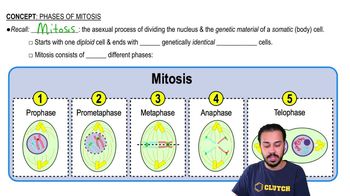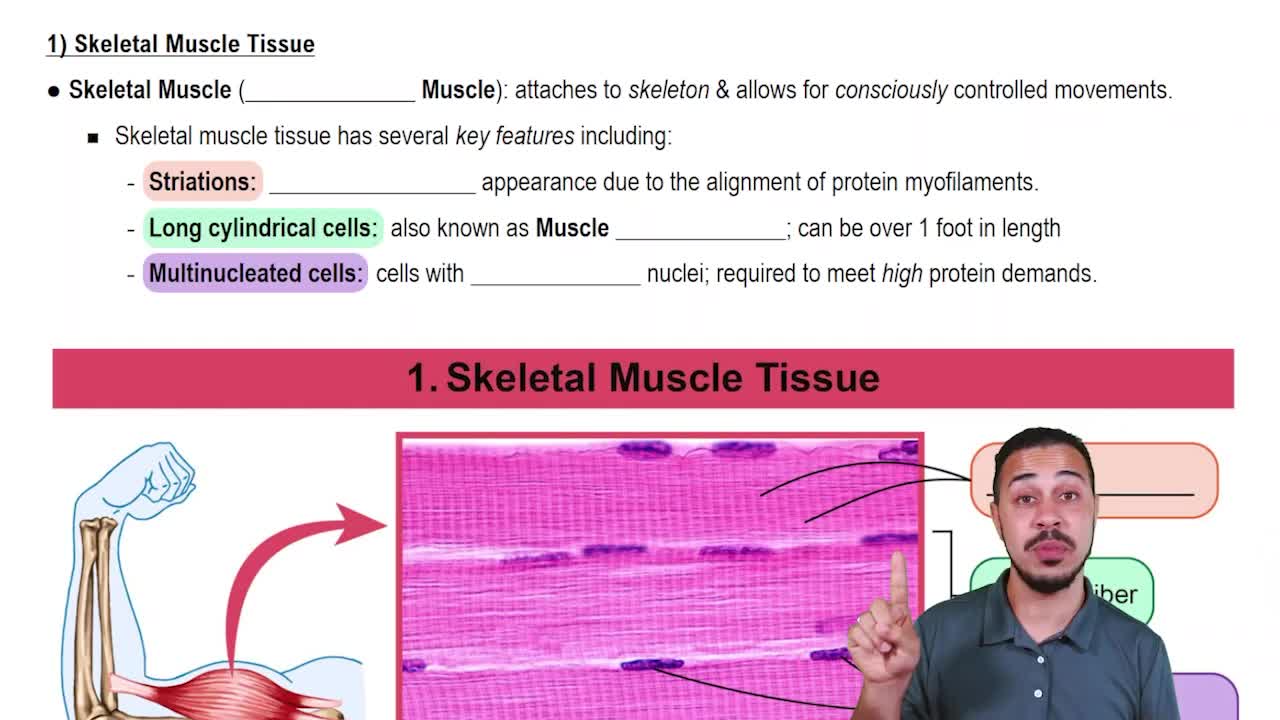Textbook Question
Progression through the cell cycle is regulated by oscillations in theconcentration of which type of molecule?a. p53, Rb, and other tumor suppressorsb. receptor tyrosine kinasesc. cyclinsd. cyclin-dependent kinases
2293
views
 Verified step by step guidance
Verified step by step guidance



 3:31m
3:31mMaster Cell Cycle Regulation with a bite sized video explanation from Bruce Bryan
Start learning